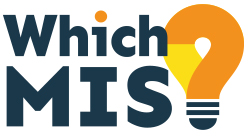On the 29th November we published part 3 of a series of blogs relating to MIS referral fees, or as some people have said ‘Kickbacks’
In a supporting LinkedIn post we asked for comments, and in this final blog on the subject we thought we’d share some of these comments.
Duncan Baldwin:
Firstly, a stalwart of our industry, Duncan Baldwin, wrote and published his own full response, (read Duncan’s full response here), where he poses the question of whether it is time for a Code of Conduct, but also commented:
“Very interesting article. What matters is that schools can make informed choices from the market and that any costs for software and support are clear and transparent. The point in the article about conflict of interest is absolutely right.”
Sean Massey:
First and foremost, it is important that authentic market conditions support an MIS market that is competitive, favours innovation and works hard to win the choices of its customers on the basis that they will choose the best product for their situation. Where anything (including kickbacks, but I am sure there are other devices) is getting in the way of that ideal, it should have a light shone on it.
There remains the issue of providing high quality, education sector specific, MIS (and other product) support to schools, which I continue to believe is best done by a local authority or a LA spin out commercial business who will typically have the IT, user experience and subject matter expertise to do the best possible job in partnership with a supplier offering 2nd/3rd tier support.
A wise man once told me (repeatedly and for many years!) that his job was to render the need for training and technical support obsolete, so that that teachers and the professionals supporting them could focus 100% of their energy on improving the skills of the colleagues who improve learning outcomes.
Until that happens, perhaps we need to turn the current support models on their head to explore how MIS support can be delivered at a price that school/MAT budgets can afford given the loss of budget to inflation over the past couple of years.
Paul Greathead:
I am fully aware, and I truly don’t believe in unethical practices as well as understanding the unlawful aspect of KICKBACKS. Kickbacks I never introduced or did as I felt it being very underhanded from an end customers perspective, the decision should be made by the customers’ requirements and not by partners’ financial gain.
Frank Coster:
Good on you for bringing this to light! 💡 Just thinking out loud here – if a company is paying ‘big’ money for referrals, maybe their product isn’t speaking for itself? Would love to hear your thoughts! 👀
To which SaraJane L replied:
Totally agree it’s choosing the best product for the school need.
Inderjeet Singh-Nijhar:
In the current climate of huge pressure on public finances with section 114 looming for Councils and their knock-on effect on schools, it’s difficult to square ‘the practice of Referral Payments or Sales Performance Payments (SPIF) is widely accepted in the commercial world’, argument.
That aside, based on my experience, the end user and in most cases the school do not have the prerequisite skills or experience to discern the best MIS model for them. The reliance on the adviser (not pushing a particular platform) becomes even more critical.
Nick Finnemore:
Interesting article, my own view on Referrals and kickbacks comes from the perspective we want strong MIS suppliers, and trusted sustainable Support Teams. I’ll start with my views on Support Kickbacks.
Kickback for support – I fully get this, as this makes the external support service sustainable, reduces costs to suppliers and gives schools a choice as to the support service they prefer, without a significant increase in cost.
In the main, in my experience, a school or MAT going to an external support team will find the support to be localised and of better value. MIS suppliers as they grow, find it harder and harder to deliver the same level of personalised support they used to when they were smaller. Great Support teams fill a need within schools to get the most out of their MIS to understand the value it offers, which every supplier would want. Everyone wins with a support kickback offering in my view.
In Summary
- Reduces cost of support for suppliers
- Schools get better more dedicated support at a price point not far from taking support from the suppliers themselves
- Support teams maintain staffing and continue to offer great support
My only point to Support teams is that they shouldn’t fully rely on these kickbacks.
Our final comment:
It seems many people feel that paying referral fees to local authorities’ support teams who bring a company new business from schools raises a great deal of concerns on ethical and legal grounds. Whilst it is an understandable commercial practice in the reseller space, it is not so when local authorities’ support centres’ foremost duty is impartial advice.
Even in non-local authority reseller commercial settings there is also a need for transparency about this – schools making purchasing decisions based on advice from their support teams need to know if these teams are going to receive a payment from the provider so that the purchasing schools can make fully informed decisions, taking into account all the facts.

